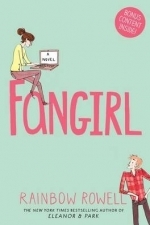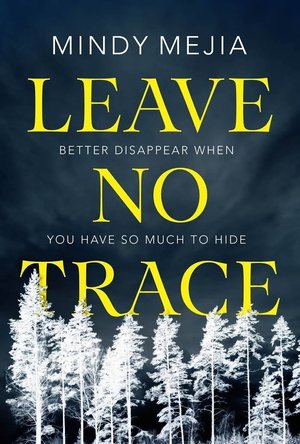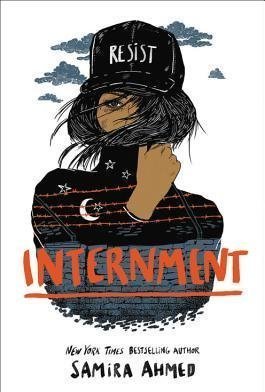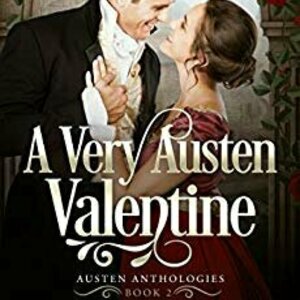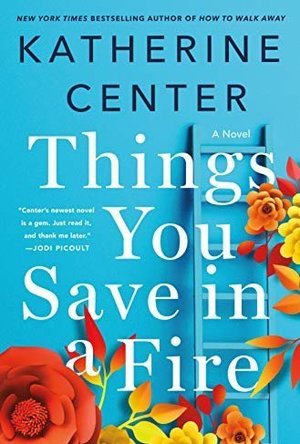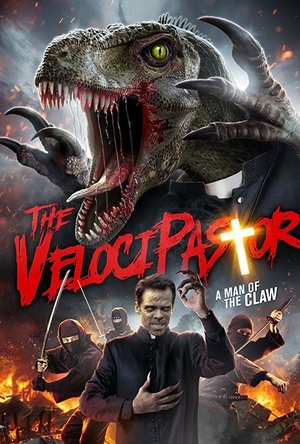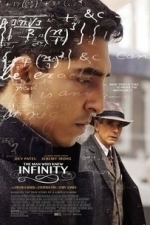Search
Search results
Kaysee Hood (83 KP) rated Fangirl in Books
Nov 16, 2017
Twin Life (4 more)
College Life
Mental Illness
Carry On
Fan Fic
Fangirl speaks to the hearts of the current generation of teenagers and young adults who have found love in fandoms but cannot seem to figure it out in the real world when their heads are in the clouds full of fanfics and theories.
As we grow to become adults we must venture through events of many firsts like kissing, love, heartbreak, and more. It is how we figure out who we are, who we want to be, and where we want to go even if sometimes the road is not easy to travel; however, for Cath she was never alone with her twin sister and she never experienced much other than living through Wren. This was until Freshmen year of college because Wren wants to separate herself from Cath. They've done everything together since birth. Cath does not want this. Cath does not want the space. She's scared not to have Wren feet away. She's fearful of the strangeness college will offer. She's terrified she's crazy and people will find her weird for the Simon and Baz fanfics she's written.
Wren does not give in. She moves in with her roommate, Coutrny, and spends her free time getting drunk at parties. She distances herself from Cath to the point they do not even speak. Thus Cath finds out who she is under the layers she’s wrapped around herself since her mom left without Wren to hold her hand and keep her steady. Oh boy, does this journey give her more adventures she has ever had in the last eighteen years of life all because of Nick (writing partner), Reagan (her roommate), and most importantly Levi (the boy who is always waiting outside her dorm for Reagan). There are other important characters at play in Cath’s life. Miniature quests wrapped around the biggest one of all: Cath learning to be her own person.
Rowell’s style is very pleasing when it comes to the flow between Cath around people in real life and how Cath is when she is logged in FanFixx posting Carry On, Simon chapters. We can relate to the girl who has hidden in her room relying on Wren to give little breathes of life from the one she is not living. She is realistic and not a carbon copy twisted to fit into a new plot to gain readers. In general Rowell writes her characters exquisitely as they stand out being not only realistic versions of possibly real people we could run into on the street, but all have their own lives not pieced together solely to further the plot for Cath alone shown with each word written through their actions or when they speak. Each could stand alone as interesting additions instead of misplaced messes. Even the subplots do not feel tacked on and further the story until the final page is done where it is easy to see how each line led to the end.
By the end of it all none of it felt overdone or predictable and I personally stood behind Cath cheering for her. Anyone could read Fangirl and enjoy Cath’s voyage alone as a Freshmen in college, but I think the fangirls and fanboys might enjoy it a bit more. Pick up a copy as soon as possible to learn how Cath’s story ends.
As we grow to become adults we must venture through events of many firsts like kissing, love, heartbreak, and more. It is how we figure out who we are, who we want to be, and where we want to go even if sometimes the road is not easy to travel; however, for Cath she was never alone with her twin sister and she never experienced much other than living through Wren. This was until Freshmen year of college because Wren wants to separate herself from Cath. They've done everything together since birth. Cath does not want this. Cath does not want the space. She's scared not to have Wren feet away. She's fearful of the strangeness college will offer. She's terrified she's crazy and people will find her weird for the Simon and Baz fanfics she's written.
Wren does not give in. She moves in with her roommate, Coutrny, and spends her free time getting drunk at parties. She distances herself from Cath to the point they do not even speak. Thus Cath finds out who she is under the layers she’s wrapped around herself since her mom left without Wren to hold her hand and keep her steady. Oh boy, does this journey give her more adventures she has ever had in the last eighteen years of life all because of Nick (writing partner), Reagan (her roommate), and most importantly Levi (the boy who is always waiting outside her dorm for Reagan). There are other important characters at play in Cath’s life. Miniature quests wrapped around the biggest one of all: Cath learning to be her own person.
Rowell’s style is very pleasing when it comes to the flow between Cath around people in real life and how Cath is when she is logged in FanFixx posting Carry On, Simon chapters. We can relate to the girl who has hidden in her room relying on Wren to give little breathes of life from the one she is not living. She is realistic and not a carbon copy twisted to fit into a new plot to gain readers. In general Rowell writes her characters exquisitely as they stand out being not only realistic versions of possibly real people we could run into on the street, but all have their own lives not pieced together solely to further the plot for Cath alone shown with each word written through their actions or when they speak. Each could stand alone as interesting additions instead of misplaced messes. Even the subplots do not feel tacked on and further the story until the final page is done where it is easy to see how each line led to the end.
By the end of it all none of it felt overdone or predictable and I personally stood behind Cath cheering for her. Anyone could read Fangirl and enjoy Cath’s voyage alone as a Freshmen in college, but I think the fangirls and fanboys might enjoy it a bit more. Pick up a copy as soon as possible to learn how Cath’s story ends.
The book opens with Gillian Deacon's personal story for why she decided to write this book - when she was diagnosed with breast cancer. Even though she believed that she had been living a healthy and sustainable lifestyle for years, she realized that one can never be too cautious. Deacon employs a few new vocabulary terms that help to introduce the reader to what Deacon hopes to accomplish with this book - by teaching the readers to be cautious about what to use in, on, and around their bodies. The first term is pinkwashing, applying to "big cosmetics corporations that position themselves as leaders in the struggle to eradicate breast cancer... [that] are, in fact, makers and marketers of products that contain many ingredients known or suspected to cause breast cancer." This term is related to the next- greenwashing, in which big corporations do the same thing with environmental awareness. She even gives a list of product lines that fall under this heading on page 10.
Deacon's motto throughout the book is "Be your own advocate," and she uses the book to teach the reader how, with multiple resources that can be found both in books and on the internet. The chapter on label reading introduces the reader to the concept of the chemical body burden, which "refers to the accumulation of chemical ingredients in the human body." This chapter was incredibly illuminating, as I am sure most people do not consider the cumulative effect of all of the manufactured products that we use on a day-to-day basis, or even how different chemicals in these different products can react negatively with one another. Governmental bodies such as Health Canada or the U.S. FDA, are also shown to be of little help in curbing the influx of chemicals into the retail market that have been presented to be linked to illness and disease - and are sometimes even prohibited from use in European countries. She gives a list of the 20 worst chemicals to avoid and why on page 31 - a list which had me examining every product in my bathroom.
Each chapter begins with some basic information about the body parts mentioned to illustrate why and how the chemicals found in products can harm the body. Every chapter is supplied with a list of products that can be found on the internet applicable to that chapter's topic along with the pros and cons of each product. If that is not enough, she also supplies recipes for do-it-yourself homemade body care products, such as face masks, hair treatments, and lipsticks.
The book also teaches that many of the common "spin" words that companies use to promote a product as safe or healthy are, in fact, meaningless, without an industry-standard definition: natural, hypoallergenic, botanicals, pure plant essence, herbal conditioning, purifying, and nourishing, to name a few. Other words can be used to hide chemicals, such as fragrance or perfume, as the companies are not legally required to list the chemicals used to achieve them. Even the regulated word "organic" can not always be trusted as anything with less than 60% organic ingredients can not be truly organic.
In short, this book is a priceless commodity for me, and with it I hope to detox both my home and and family, adding years to all of our lives.
Deacon's motto throughout the book is "Be your own advocate," and she uses the book to teach the reader how, with multiple resources that can be found both in books and on the internet. The chapter on label reading introduces the reader to the concept of the chemical body burden, which "refers to the accumulation of chemical ingredients in the human body." This chapter was incredibly illuminating, as I am sure most people do not consider the cumulative effect of all of the manufactured products that we use on a day-to-day basis, or even how different chemicals in these different products can react negatively with one another. Governmental bodies such as Health Canada or the U.S. FDA, are also shown to be of little help in curbing the influx of chemicals into the retail market that have been presented to be linked to illness and disease - and are sometimes even prohibited from use in European countries. She gives a list of the 20 worst chemicals to avoid and why on page 31 - a list which had me examining every product in my bathroom.
Each chapter begins with some basic information about the body parts mentioned to illustrate why and how the chemicals found in products can harm the body. Every chapter is supplied with a list of products that can be found on the internet applicable to that chapter's topic along with the pros and cons of each product. If that is not enough, she also supplies recipes for do-it-yourself homemade body care products, such as face masks, hair treatments, and lipsticks.
The book also teaches that many of the common "spin" words that companies use to promote a product as safe or healthy are, in fact, meaningless, without an industry-standard definition: natural, hypoallergenic, botanicals, pure plant essence, herbal conditioning, purifying, and nourishing, to name a few. Other words can be used to hide chemicals, such as fragrance or perfume, as the companies are not legally required to list the chemicals used to achieve them. Even the regulated word "organic" can not always be trusted as anything with less than 60% organic ingredients can not be truly organic.
In short, this book is a priceless commodity for me, and with it I hope to detox both my home and and family, adding years to all of our lives.
Kristy H (1252 KP) rated Leave No Trace in Books
Mar 15, 2019
Quick, puzzling read
Maya Stark is twenty-three and an assistant speech therapist at Congdon, a facility for the mentally ill. She's had a tough past, and it isn't easy for her to form attachments with anyone. Maya's mom left when she was a kid, and Maya was once a patient at the facility where she now works. So she's surprised when she feels drawn to Congdon's newest patient, nineteen-year-old Lucas Blackthorn. Lucas arrives at Congdon after being arrested for breaking and entering into a wilderness store. Lucas and his father, Josiah, haven't been seen in ten years: Josiah took his son camping in the vast stretch of Minnesota territory known as the Boundary Waters a decade ago and the two haven't been heard from since. It's clear that Lucas wants nothing more than to return to the Boundary Waters. He's a recalcitrant and sometimes violent patient, who will cooperate with no one but Maya. Maya wants to help Lucas, and she wants to know why she feels so strong for this strange and angry boy.
This was my first Mejia book, and while it wasn't quite what I was expecting (I was thinking more mystery, less character-driven novel), it was really interesting. It's told mostly from Maya's point of view, but we hear some from Lucas and others too. It's a very readable book--I tore through it quickly, as there's something gripping about the style and reveal of facts about both Maya and Lucas' lives. We start out knowing very little about either of them--what put Maya in Congdon, what drove Lucas and Josiah into the Boundary Waters, and the novel does a good job of keeping you reading and wondering.
It's an emotional read--obviously being partially set in a mental hospital, it deals with mental illness. I thought, overall, Mejia did a good job with the topic, but if that's a trigger for you, just keep it in mind. The ancillary characters are pretty sparse: Maya's boss, the patients, Maya's dad, etc., but all are well-formed as well. Maya and Lucas are the stars, and both are well-done and easy to picture. The novel did a great job of pulling together all its various pieces. I was impressed how Mejia brought together the different parts of Lucas and Maya's lives--it's quite exceptionally thought out.
Probably the only thing marring this one for me were little things, but they nagged at me a bit. At times, the care Lucas receives seems odd and a bit weirdly thought out--giving a speech therapist such control over his care, for instance, and taking a violent patient into some strange situations. Maya and Lucas' instant attachment was also a little hard to completely believe, as well. But those were pretty small pieces in the scheme of the book.
Overall, I enjoyed my first Mejia book. The plot was the best part for me--I loved how it was a quick read and how enjoyable it was to put together all the various pieces of Lucas and Maya's lives. While there were a few little quirks that kept this from being an amazing read, it was still a solid, worthwhile read.
I received a copy of this novel from the publisher and Netgalley in return for an unbiased review (thank you!).
This was my first Mejia book, and while it wasn't quite what I was expecting (I was thinking more mystery, less character-driven novel), it was really interesting. It's told mostly from Maya's point of view, but we hear some from Lucas and others too. It's a very readable book--I tore through it quickly, as there's something gripping about the style and reveal of facts about both Maya and Lucas' lives. We start out knowing very little about either of them--what put Maya in Congdon, what drove Lucas and Josiah into the Boundary Waters, and the novel does a good job of keeping you reading and wondering.
It's an emotional read--obviously being partially set in a mental hospital, it deals with mental illness. I thought, overall, Mejia did a good job with the topic, but if that's a trigger for you, just keep it in mind. The ancillary characters are pretty sparse: Maya's boss, the patients, Maya's dad, etc., but all are well-formed as well. Maya and Lucas are the stars, and both are well-done and easy to picture. The novel did a great job of pulling together all its various pieces. I was impressed how Mejia brought together the different parts of Lucas and Maya's lives--it's quite exceptionally thought out.
Probably the only thing marring this one for me were little things, but they nagged at me a bit. At times, the care Lucas receives seems odd and a bit weirdly thought out--giving a speech therapist such control over his care, for instance, and taking a violent patient into some strange situations. Maya and Lucas' instant attachment was also a little hard to completely believe, as well. But those were pretty small pieces in the scheme of the book.
Overall, I enjoyed my first Mejia book. The plot was the best part for me--I loved how it was a quick read and how enjoyable it was to put together all the various pieces of Lucas and Maya's lives. While there were a few little quirks that kept this from being an amazing read, it was still a solid, worthwhile read.
I received a copy of this novel from the publisher and Netgalley in return for an unbiased review (thank you!).
Goddess in the Stacks (553 KP) rated Internment in Books
Jul 25, 2019
This book should be required reading in schools. Especially now. It could be paired with Anne Frank. One history, one a possible future. Probable, even. Depending on how you look at it, an actual present. We DO have concentration camps on the border. (Which makes me shudder to write, what in the absolute FUCK.)
*breathes deeply*
Internment is a gut-punch of a book. I had to set it down two pages in and get control of myself, and again around page eleven. I took breaks throughout reading it to do HOUSEWORK, of all things, because I needed the mental and emotional reprieve. And I'm a white woman. I have the privilege of being pretty sure I will never be the target of these kinds of atrocities. Which means I have the responsibility to work against them. I'm also a physically weak, chronic-illness-having, unemployed white woman, (which does have the benefit of letting me keep on eye on my middle-eastern neighbors' houses to watch for ICE showing up - I fully intend to go make myself a damned nuisance if they do) so I can't go storm the camps or march for hours at protests. What I can do is boost books like this.
If you're white, GO READ THIS BOOK. Suck it up and read it. I don't have the same recommendation for my friends of color because they already live with this kind of fear and racism. They don't need it illustrated to them. WE DO.
This book needs content warnings for violence, threats of rape, anxiety-inducing situations, racism, violent death - Samira Ahmed does NOT pull punches. Direct resistance is costly. It takes courage and sacrifice, and she does not shy away from showing that. It would be sugar-coating if she did.
Internment focuses on the idea of America forcing citizens into camps - but we are already forcing non-citizens into camps. The Red Cross visits the camp, not unlike our politicians visiting the immigrant concentration camps on our border now. They have a garden they can work on in the camp - not unlike a pair of photos I saw on Twitter. (see blog for photos.)
Internment is stunning, heartbreaking, and inspiring, and if you're emotionally capable of it, YOU SHOULD READ IT. This is happening, right now, on our southern border. It is infuriating that our politicians have not put a stop to it yet. My own Congressman (I just moved into this area, I haven't had a chance to vote on him yet) just visited the camps, and his Twitter thread on them is SO CAREFUL to use absolutely neutral language when talking about them, and it pisses me off. This is NOT a neutral subject.
Internment did have a few downsides - the Director never gets a name (though the book is told from Layla's viewpoint, and it would not surprise me if he never bothered to GIVE his name to the internees) and he's almost cartoonishly evil. I would have liked to know more about the guard that helped Layla on occasion, but again, told as it was from her viewpoint, it can be excused by saying she simply didn't know more about him. But this IS a Young Adult novel told from a seventeen-year-old's viewpoint. We're only going to get what she knows and feels. So these downsides don't detract from the book for me.
To sum up - I recommend Internment at the highest level. You absolutely must read this book.
You can find all my reviews and more at http://goddessinthestacks.com
*breathes deeply*
Internment is a gut-punch of a book. I had to set it down two pages in and get control of myself, and again around page eleven. I took breaks throughout reading it to do HOUSEWORK, of all things, because I needed the mental and emotional reprieve. And I'm a white woman. I have the privilege of being pretty sure I will never be the target of these kinds of atrocities. Which means I have the responsibility to work against them. I'm also a physically weak, chronic-illness-having, unemployed white woman, (which does have the benefit of letting me keep on eye on my middle-eastern neighbors' houses to watch for ICE showing up - I fully intend to go make myself a damned nuisance if they do) so I can't go storm the camps or march for hours at protests. What I can do is boost books like this.
If you're white, GO READ THIS BOOK. Suck it up and read it. I don't have the same recommendation for my friends of color because they already live with this kind of fear and racism. They don't need it illustrated to them. WE DO.
This book needs content warnings for violence, threats of rape, anxiety-inducing situations, racism, violent death - Samira Ahmed does NOT pull punches. Direct resistance is costly. It takes courage and sacrifice, and she does not shy away from showing that. It would be sugar-coating if she did.
Internment focuses on the idea of America forcing citizens into camps - but we are already forcing non-citizens into camps. The Red Cross visits the camp, not unlike our politicians visiting the immigrant concentration camps on our border now. They have a garden they can work on in the camp - not unlike a pair of photos I saw on Twitter. (see blog for photos.)
Internment is stunning, heartbreaking, and inspiring, and if you're emotionally capable of it, YOU SHOULD READ IT. This is happening, right now, on our southern border. It is infuriating that our politicians have not put a stop to it yet. My own Congressman (I just moved into this area, I haven't had a chance to vote on him yet) just visited the camps, and his Twitter thread on them is SO CAREFUL to use absolutely neutral language when talking about them, and it pisses me off. This is NOT a neutral subject.
Internment did have a few downsides - the Director never gets a name (though the book is told from Layla's viewpoint, and it would not surprise me if he never bothered to GIVE his name to the internees) and he's almost cartoonishly evil. I would have liked to know more about the guard that helped Layla on occasion, but again, told as it was from her viewpoint, it can be excused by saying she simply didn't know more about him. But this IS a Young Adult novel told from a seventeen-year-old's viewpoint. We're only going to get what she knows and feels. So these downsides don't detract from the book for me.
To sum up - I recommend Internment at the highest level. You absolutely must read this book.
You can find all my reviews and more at http://goddessinthestacks.com
MaryAnn (14 KP) rated A Very Austen Valentine in Books
Nov 4, 2019
ix beloved authors deliver romantic Valentine novellas set in Jane Austens Regency world. Robin Helm, Laura Hile, Wendi Sotis, and Barbara Cornthwaite, together with Susan Kaye and Mandy Cook, share variations of Pride and Prejudice, Persuasion, and Sense and Sensibility, featuring your favorite characters in sequels, adaptations, and spinoffs of Austens adored novels. Experience uplifting romance, laugh-out-loud humor, and poignant regret as these authors deftly tug on your heartstrings this Valentines Day.
I Dream of You by Robin Helm
Newly-married Elizabeth Darcy has a plan: to charm her too-busy husband into desiring her company as much as he did when he was courting her. A series of romantic dreams gives her just the push she needs to put that plan into action.
Sir Walter Takes a Wife by Laura Hile
Faced with a lonely future and finding himself strapped for cash, Persuasions Sir Walter Elliot manfully decides to marry again. But his careful plans go sadly awry! A lighthearted Valentine mash-up featuring two of Jane Austens worst snobs.
My Forever Valentine by Wendi Sotis
Jane and Charles Bingley have married, even though Miss Elizabeth Bennet remains certain Mr. Fitzwilliam Darcy gave his best effort to keep them apart. After Mr. Darcy refused to stand up with Bingley and did not attend the wedding, she despises the gentleman more than ever and finds his company intolerable. How will she endure her visit to Kent if Mr. Darcy turns up everywhere she goes?
Pretence and Prejudice by Barbara Cornthwaite
A chance encounter with a handsome stranger forces Elizabeth to resort to subterfuge in order to discover his true intentions.
My Valentine by Mandy H. Cook Mandy H. Cook
Little Charlotte was always determined and independent, traits which served her well as she battled a serious childhood illness and later as she took on Polite Society. Will those traits now deprive her of true love? Or would her lifelong Valentine win her heart?
The Lovers Ruse by Susan Kaye
In this Persuasion alteration, Anne is so altered by Wentworths love in the summer of 1806, she refuses to give him up when both her godmother and father try to persuade her. The Lovers Rusefollows Frederick and Anne through their whirlwind courtship and their secret engagement. When Wentworth returns for his Annie girl, the cat comes out of the bag.
My Thoughts: These six charming novellas centered around Valentines will entice all those who adore Jane Austen's writings. Based on characters from Jane Austen's novels; I enjoyed reading into the lives of the Darcy's; I was impressed that the writers Robin Helm, Wendi Sotis and Mandy H. Cook are all centered their novellas around the same family. Each storytelling its own unique view of their lives.
Each story is fun to read, and takes the reader back to a simpler time, of love, romance, and proper etiquette. Each story has it's own charm and brings the reader closer to the characters.
My favorites have to be the novellas containing the characters Elizabeth and Fitzwilliam Darcy, my absolute favorite being "I Dream of You". In this novella we learn how to give rather than to receive and the joys we can draw from each act of kindness.
If you love historical fiction, and Jane Austen novels, then this is certainly a book for you.
I Dream of You by Robin Helm
Newly-married Elizabeth Darcy has a plan: to charm her too-busy husband into desiring her company as much as he did when he was courting her. A series of romantic dreams gives her just the push she needs to put that plan into action.
Sir Walter Takes a Wife by Laura Hile
Faced with a lonely future and finding himself strapped for cash, Persuasions Sir Walter Elliot manfully decides to marry again. But his careful plans go sadly awry! A lighthearted Valentine mash-up featuring two of Jane Austens worst snobs.
My Forever Valentine by Wendi Sotis
Jane and Charles Bingley have married, even though Miss Elizabeth Bennet remains certain Mr. Fitzwilliam Darcy gave his best effort to keep them apart. After Mr. Darcy refused to stand up with Bingley and did not attend the wedding, she despises the gentleman more than ever and finds his company intolerable. How will she endure her visit to Kent if Mr. Darcy turns up everywhere she goes?
Pretence and Prejudice by Barbara Cornthwaite
A chance encounter with a handsome stranger forces Elizabeth to resort to subterfuge in order to discover his true intentions.
My Valentine by Mandy H. Cook Mandy H. Cook
Little Charlotte was always determined and independent, traits which served her well as she battled a serious childhood illness and later as she took on Polite Society. Will those traits now deprive her of true love? Or would her lifelong Valentine win her heart?
The Lovers Ruse by Susan Kaye
In this Persuasion alteration, Anne is so altered by Wentworths love in the summer of 1806, she refuses to give him up when both her godmother and father try to persuade her. The Lovers Rusefollows Frederick and Anne through their whirlwind courtship and their secret engagement. When Wentworth returns for his Annie girl, the cat comes out of the bag.
My Thoughts: These six charming novellas centered around Valentines will entice all those who adore Jane Austen's writings. Based on characters from Jane Austen's novels; I enjoyed reading into the lives of the Darcy's; I was impressed that the writers Robin Helm, Wendi Sotis and Mandy H. Cook are all centered their novellas around the same family. Each storytelling its own unique view of their lives.
Each story is fun to read, and takes the reader back to a simpler time, of love, romance, and proper etiquette. Each story has it's own charm and brings the reader closer to the characters.
My favorites have to be the novellas containing the characters Elizabeth and Fitzwilliam Darcy, my absolute favorite being "I Dream of You". In this novella we learn how to give rather than to receive and the joys we can draw from each act of kindness.
If you love historical fiction, and Jane Austen novels, then this is certainly a book for you.
Kristy H (1252 KP) rated Things You Save in a Fire in Books
Aug 5, 2019
Cassie Hanwell is a great firefighter. She loves her job in Austin, Texas and her friendly crew. Cassie's life is shaped by a series of events that occurred on her sixteenth birthday, including her mother leaving her and her father. Now she stays clearly in her comfort zone. That zone includes work, work, and more work. No relationships, no real attachments to anyone, a strong resistance to forgiving her mother, and definitely not love. But when her mom calls Cassie and asks her to move to Boston to help her--due to an illness--Cassie has to leave that comfort zone. Big time. She has to go live with her mother, whom she barely knows anymore. She has to leave behind her progressive Austin crew and work with a group of guys in Boston who are appalled at the thought of a "lady" on their crew. Except for one guy, the new rookie, who has no problem with Cassie. And Cassie doesn't mind being around him. At all. In fact she even likes it. But love isn't in Cassie's vocabulary, and even if it was, everyone knows firefighters don't date other firefighters. Right?
"I'd structured my life around routine, and safety, and order. Feelings were a lot of trouble. I avoided them as much as possible."
I really enjoyed Katherine Center's previous book, How to Walk Away, so I was excited to read this one. I didn't enjoy this one quite as much (though I enjoyed the little link between the two), but it is a cute read. I have to admit, there were times in this one when things seemed a little too saccharine for my cynical self. I know, I know, that's terrible, especially when things aren't always light and breezy for Cassie and friends in this book. I think it's something only sarcastic folks like myself will understand.
In fact, this book is a really interesting blend between dark and quite light and fluffy. Cassie has a dark past, as does the rookie, Owen, but a lot of the book is Cassie just repeating that she won't ever love anyone or date a firefighter. I think we all know where this is leading...
However, the book is really funny at times, and it's very easy to like Cassie. She's incredibly tough and brave, and she gives all the guys a run for their money. The book makes some great points on sexism, and I always enjoy a chance to watch a tough girl beat some boys at their own game. And I have to admit I enjoyed (okay, identified with) some of her anti-social tendencies.
"Human connection had its upsides, but it sure was a lot of work. The risk-reward ratio was low, at best."
There's also a good supporting cast from Cassie's mom and her mom's best friend. For me, this one picked up in the last fourth or so, when everything seemed to really come together. There's a moment when it all just clicks, and I found myself laughing and grinning a lot. That part made it all worth reading for me.
Overall, it took me some time to warm up to this book--much like it took Cassie a while to warm up to Massachusetts. But she's an engaging, tough character, and her story is one of resilience, even if there are a lot of really sweet, almost too-perfect moments too. You can pretty much tell how the story is going to play out, but it's a fun, cute read. 3.5 stars.
"I'd structured my life around routine, and safety, and order. Feelings were a lot of trouble. I avoided them as much as possible."
I really enjoyed Katherine Center's previous book, How to Walk Away, so I was excited to read this one. I didn't enjoy this one quite as much (though I enjoyed the little link between the two), but it is a cute read. I have to admit, there were times in this one when things seemed a little too saccharine for my cynical self. I know, I know, that's terrible, especially when things aren't always light and breezy for Cassie and friends in this book. I think it's something only sarcastic folks like myself will understand.
In fact, this book is a really interesting blend between dark and quite light and fluffy. Cassie has a dark past, as does the rookie, Owen, but a lot of the book is Cassie just repeating that she won't ever love anyone or date a firefighter. I think we all know where this is leading...
However, the book is really funny at times, and it's very easy to like Cassie. She's incredibly tough and brave, and she gives all the guys a run for their money. The book makes some great points on sexism, and I always enjoy a chance to watch a tough girl beat some boys at their own game. And I have to admit I enjoyed (okay, identified with) some of her anti-social tendencies.
"Human connection had its upsides, but it sure was a lot of work. The risk-reward ratio was low, at best."
There's also a good supporting cast from Cassie's mom and her mom's best friend. For me, this one picked up in the last fourth or so, when everything seemed to really come together. There's a moment when it all just clicks, and I found myself laughing and grinning a lot. That part made it all worth reading for me.
Overall, it took me some time to warm up to this book--much like it took Cassie a while to warm up to Massachusetts. But she's an engaging, tough character, and her story is one of resilience, even if there are a lot of really sweet, almost too-perfect moments too. You can pretty much tell how the story is going to play out, but it's a fun, cute read. 3.5 stars.
Darren (1599 KP) rated The Velocipastor (2018) in Movies
Aug 6, 2019
Story: The VelociPastor starts when Doug Jones (Cohan) whose parents are murdered leading to him to loses his faith, Father Stewart (Steere) sends him of a self-discovery holiday, which sees him head to China, when he returns he finds himself having horrendous nightmares and after he meets a hooker Carol (Kempinski), he tries to put everything together.
Once Doug learns that he can turn into a dinosaur, he works with Carol to fight crime to clean up his own town, including the man that murdered his parents.
Thoughts on The VelociPastor
Characters – Doug Jones is a priest that has followed God for years until his parents are murdered outside his church, he goes on a voyage of self-discovery in China, which sees him infected with an illness. Doug have the ability to turn into a dinosaur, where he decides to use this new power to fight crime in his town, getting revenge on the person who murdered his parents and bring down the drug lord. Carol is a local hooker that meets Doug and sees first-hand just what he is capable off, she pushes him into fighting crime, while she can handle herself in combat too. Father Stewart is the mentor of Doug, he has always helped him keep the faith and is willing to let him discover his faith once more. Wei Chan is the local drug lord that has been controlling the crime in the town, along with his ninjas he will be the fight Doug must take on.
Performances – This movie does have the over the top performances which does only help make things more entertaining, Greg Cohan in the leading role knowns when to hold things back before going over the top, which helps the character. Alyssa Kempinski is fun in her role, which brings the change in our lead character through the film. The whole cast know exactly the tone of this film and it shows in the their performances.
Story – The story here follows a priest that gets infected with something that turns him into a dinosaur and decides to go on to fight crime with this new ability. The first thing you must be prepared for is knowing that this film doesn’t take anything serious and is well aware that everything is as ridiculous as it sounds. The idea behind the film is truly original, it is purely fun and wildly over the top. If you do go into this story thinking you are getting something serious, you will be disappointed because this film is completely self-aware of what it is trying to tell.
Action/Comedy/Horror/Sci-Fi – The action in the film does play into the comedy, which is silly and over the top, which does include the dinosaur fighting ninja, which helps with the horror and sci-fi elements in the film.
Settings – The film is set in a small town, this does help with the idea of how silly this film takes itself without needing to go into anything too serious once again.
Special Effects – The effects in the film are practical, this again plays into the self-aware side of the film, which does show with the dinosaur suit fighting ninja.
Scene of the Movie – Dinosaur v ninjas.
That Moment That Annoyed Me – The random Father Stewart backstory.
Final Thoughts – This is one if not the most self-aware movies you will see, it is so funny you can enjoy laughing through how ridiculous this film is.
Overall: Purely fun.
Once Doug learns that he can turn into a dinosaur, he works with Carol to fight crime to clean up his own town, including the man that murdered his parents.
Thoughts on The VelociPastor
Characters – Doug Jones is a priest that has followed God for years until his parents are murdered outside his church, he goes on a voyage of self-discovery in China, which sees him infected with an illness. Doug have the ability to turn into a dinosaur, where he decides to use this new power to fight crime in his town, getting revenge on the person who murdered his parents and bring down the drug lord. Carol is a local hooker that meets Doug and sees first-hand just what he is capable off, she pushes him into fighting crime, while she can handle herself in combat too. Father Stewart is the mentor of Doug, he has always helped him keep the faith and is willing to let him discover his faith once more. Wei Chan is the local drug lord that has been controlling the crime in the town, along with his ninjas he will be the fight Doug must take on.
Performances – This movie does have the over the top performances which does only help make things more entertaining, Greg Cohan in the leading role knowns when to hold things back before going over the top, which helps the character. Alyssa Kempinski is fun in her role, which brings the change in our lead character through the film. The whole cast know exactly the tone of this film and it shows in the their performances.
Story – The story here follows a priest that gets infected with something that turns him into a dinosaur and decides to go on to fight crime with this new ability. The first thing you must be prepared for is knowing that this film doesn’t take anything serious and is well aware that everything is as ridiculous as it sounds. The idea behind the film is truly original, it is purely fun and wildly over the top. If you do go into this story thinking you are getting something serious, you will be disappointed because this film is completely self-aware of what it is trying to tell.
Action/Comedy/Horror/Sci-Fi – The action in the film does play into the comedy, which is silly and over the top, which does include the dinosaur fighting ninja, which helps with the horror and sci-fi elements in the film.
Settings – The film is set in a small town, this does help with the idea of how silly this film takes itself without needing to go into anything too serious once again.
Special Effects – The effects in the film are practical, this again plays into the self-aware side of the film, which does show with the dinosaur suit fighting ninja.
Scene of the Movie – Dinosaur v ninjas.
That Moment That Annoyed Me – The random Father Stewart backstory.
Final Thoughts – This is one if not the most self-aware movies you will see, it is so funny you can enjoy laughing through how ridiculous this film is.
Overall: Purely fun.
Gareth von Kallenbach (980 KP) rated The Man Who Knew Infinity (2016) in Movies
Aug 6, 2019
In 1914, Srinivasa Ramanujan (Dev Patel) traveled from his poverty-stricken existence in Madras, India to Trinity College, Cambridge in the hope that he would have his theories published and be recognized for the mathematical genius he was. While there, despite facing racism, hostility and severe illness, he formed an important relationship with G.H. Hardy (Jeremy Irons) that would lead to breakthroughs in mathematics that are still relevant today.
It would be easy to prattle on about the tremendous talent onscreen in The Man Who Knew Infinity and with a supporting cast that features some of Britain’s best; we get exactly what we’d expect from the likes of Jeremy Irons, Toby Jones and Kevin McNally. All at the top of their game, they serve the story well with nuanced and well-rounded performances, and I’m certainly not going to take anything away from the exceptional jobs they’ve all done here. All the praise this film deserves however, needs to be directed at Dev Patel. In his role as Ramanujan, he’s completely stepped out of the shadow of his big-screen debut in Slumdog Millionaire and has proved his worth as a leading man capable of carrying the weight of an entire feature. Distancing himself also from the lovable, bumbling hotel owner in The Best Exotic Marigold movies, with Ramanujan he is allowed the room to display an incredible range, from quiet intensity to outspoken, unbridled passion and determination. Kudos also to the writers for not going The Big Short route (e.g. talking down to the uninitiated with ridiculous cutaways), but by using simple logic and examples to help convey complex information relevant to the plot.
For the performances alone, this is a solid entry in the biopic genre, but structurally speaking, it’s the editing that lets the film down. This very easily could have emerged as the next A Beautiful Mind, but between a bloated first act, a middling and wandering second act and a truncated final third, The Man Who Knew Infinity falls just short of greatness. Not only is no attention paid to Ramanujan’s achievements as a child, but too much time is given to details and subplots that are arguably inconsequential to the main narrative. This is especially evident in the inclusion of Bertrand Russell (who lived such a rich and fascinating life himself, it would take several films to do that story justice) and his being here feels like just a hollow excuse to include a cameo from another figure of historical importance. The biggest disservice though comes with the ending where we are denied a much needed catharsis and are left to suffer through a slap-dash, halfhearted montage. A restructuring from a more seasoned hand would have undoubtedly led to stronger word-of-mouth and perhaps a wider release. I also wouldn’t be surprised to learn that this is a case of “too many cooks” as the film has a staggering 43 credited producers. I get that independent features can be forced to source their funding from many places, but you can’t tell me that with all those opinions flying about that some of the original intent didn’t get lost in the noise.
As an aside, what Stephen Fry is doing here is beyond me. He’s given two scenes with perhaps a half a dozen lines, leaving his incomparable persona entirely wasted on a completely throwaway character. It’s a pity he wasn’t given a meatier role as one of Ramanujan’s antagonists.
It would be easy to prattle on about the tremendous talent onscreen in The Man Who Knew Infinity and with a supporting cast that features some of Britain’s best; we get exactly what we’d expect from the likes of Jeremy Irons, Toby Jones and Kevin McNally. All at the top of their game, they serve the story well with nuanced and well-rounded performances, and I’m certainly not going to take anything away from the exceptional jobs they’ve all done here. All the praise this film deserves however, needs to be directed at Dev Patel. In his role as Ramanujan, he’s completely stepped out of the shadow of his big-screen debut in Slumdog Millionaire and has proved his worth as a leading man capable of carrying the weight of an entire feature. Distancing himself also from the lovable, bumbling hotel owner in The Best Exotic Marigold movies, with Ramanujan he is allowed the room to display an incredible range, from quiet intensity to outspoken, unbridled passion and determination. Kudos also to the writers for not going The Big Short route (e.g. talking down to the uninitiated with ridiculous cutaways), but by using simple logic and examples to help convey complex information relevant to the plot.
For the performances alone, this is a solid entry in the biopic genre, but structurally speaking, it’s the editing that lets the film down. This very easily could have emerged as the next A Beautiful Mind, but between a bloated first act, a middling and wandering second act and a truncated final third, The Man Who Knew Infinity falls just short of greatness. Not only is no attention paid to Ramanujan’s achievements as a child, but too much time is given to details and subplots that are arguably inconsequential to the main narrative. This is especially evident in the inclusion of Bertrand Russell (who lived such a rich and fascinating life himself, it would take several films to do that story justice) and his being here feels like just a hollow excuse to include a cameo from another figure of historical importance. The biggest disservice though comes with the ending where we are denied a much needed catharsis and are left to suffer through a slap-dash, halfhearted montage. A restructuring from a more seasoned hand would have undoubtedly led to stronger word-of-mouth and perhaps a wider release. I also wouldn’t be surprised to learn that this is a case of “too many cooks” as the film has a staggering 43 credited producers. I get that independent features can be forced to source their funding from many places, but you can’t tell me that with all those opinions flying about that some of the original intent didn’t get lost in the noise.
As an aside, what Stephen Fry is doing here is beyond me. He’s given two scenes with perhaps a half a dozen lines, leaving his incomparable persona entirely wasted on a completely throwaway character. It’s a pity he wasn’t given a meatier role as one of Ramanujan’s antagonists.

iDoctor Pro - Medical Record
Medical and Health & Fitness
App
iDoctor Pro Medical History is the most complete database for control patients, designed especially...

My Pain Diary & Symptom Tracker: Gold Edition
Medical and Health & Fitness
App
This is the successor the the popular, award-winning, best selling, doctor recommended pain tracking...
